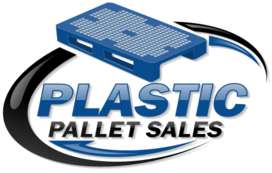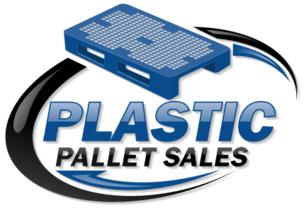Plastic Pallets for Pharmaceutical Cold Chain Compliance
Plastic Pallets for Pharmaceutical Cold Chain Compliance
In the pharmaceutical industry, maintaining the proper temperatures during transportation and storage is imperative to ensure the safe and effective use of medication. The cold chain is a critical component of pharmaceutical logistics, and any break in the cold chain can result in the loss of potency or even the complete spoilage of medication.
Plastic pallets have emerged as a preferred solution for pharmaceutical cold chain compliance due to their inherent durability, hygiene, and ability to resist temperature fluctuations. In this article, we will delve deep into plastic pallets, their advantages, and how they ensure compliance with the cold chain mandates.
Advantages of Plastic Pallets
Pharmaceutical companies have been using wooden pallets for storing and transporting their goods for decades. However, wooden pallets have proven to be insufficient in meeting the demands of the modern pharmaceutical supply chain. The following are some of the benefits of using plastic pallets over wooden pallets:
1. Durability
Plastic pallets are sturdier than wooden pallets in construction and do not chip, crack, or splinter. They can withstand heavy loads, impacts, and rough handling during transportation and storage.
2. Hygiene
Sterilization of pallets is a critical factor in the pharmaceutical industry. Plastic pallets can be easily cleaned and sterilized using high-pressure washers or even by soaking in disinfectant solutions. Unlike wooden pallets, plastic pallets do not absorb or retain moisture, making them a more hygienic option.
3. Resistant to Temperature Fluctuations
Temperature monitoring during storage and transportation is a crucial aspect of the pharmaceutical cold chain. Plastic pallets maintain their mechanical properties in extreme temperatures, making them suitable for use in refrigerated or frozen warehouses, cold rooms, and trucks.
4. Eco-friendly
Plastic pallets are recyclable and reusable for many years, making them an eco-friendly alternative to their wooden counterparts. They do not generate wood debris or require fumigation, reducing the carbon footprint of the pharmaceutical supply chain.
How Plastic Pallets Ensure Cold Chain Compliance
The use of plastic pallets is designed to ensure that pharmaceutical products remain within the required temperature range throughout the supply chain. Plastic pallets are instrumental in maintaining and improving the quality of pharma products. Here is how:
1. Temperature-resistant Material
Plastic pallets are made of polypropylene or high-density polyethylene, which can tolerate a wide temperature range, including freezing and high heat. This makes them an ideal solution for transporting and storing goods required to be maintained at a specific temperature.
2. Hygienic Material
The plastic material used to make plastic pallets is easy to clean and sterilize, unlike wooden pallets, that can harbor bacteria after some time because it has a porous surface.
3. Plastic Pallets Reduce Downtime
Plastic pallets are designed for reuse for many years, which reduces downtime in receiving and shipping functions in the supply chain. This is because when using wooden pallets, you often have to worry about missing, damaged pallets, or even using a different type of pallet depending on your supplier or customer.
4. They Eliminate the Need for Pallet Exchange
Wooden pallets have an international standard of 40 inches by 48 inches, which forced countries to exchange pallets to comply with the international shipment standard. However, this is not the case for plastic pallets because they can be customized to the required size.
5. Avoidance of Methyl Bromide Fumigation
Methyl Bromide is a fossil fuel-based organic compound that is commonly used in fumigation of wooden pallets to ensure they are free from pests and insects. However, the use of this chemically interacting agent can affect the quality of the pharmaceutical products being stored or transported. This is because the fumigation agent can be absorbed by the wooden pallet, subsequently contaminating the products. Using plastic pallets eliminates the need for methyl bromide fumigation, avoiding potential contamination.
FAQs
1. Are plastic pallets more expensive than wooden pallets?
Yes, plastic pallets can be more expensive than wooden pallets, but they provide value for the additional cost. They are more durable, hygienic, can withstand extreme temperatures, are reusable for an extended period, and avoid the need for methyl bromide fumigation, meaning they are worth the investment.
2. Do plastic pallets come in different sizes?
Yes, plastic pallets come in different sizes to cater for the various needs in different industries.
3. Can plastic pallets be recycled?
Yes, plastic pallets are recyclable, and they can be recycled into plastic products.
4. How do you clean and disinfect plastic pallets?
You can use hot water and soap to clean plastic pallets, and they can also be pressure-washed and sterilized using disinfectants.
5. Are plastic pallets good for cold chain management?
Yes, plastic pallets are ideal for cold chain management because they can withstand temperature fluctuations, are hygienic, and provide a longer service life than wooden pallets know for absorbing moisture and retaining bacteria that can compromise the quality of the product.
Conclusion
Pharmaceutical companies worldwide seek to maintain quality when shipping or storing their products. Proper handling of pharmaceutical supplies is critical to ensure maximum efficacy and cost-effective storage. Plastic pallets are an ideal solution for those looking for an affordable, hygienic, and temperature-resistant solution for cold chain compliance. With zero fumigation and zero waste, using plastic pallets is the most eco-friendly option that ensures the highest quality for your products throughout the supply chain.
#Plastic #Pallets #Pharmaceutical #Cold #Chain #Compliance



Leave a Reply
You must be logged in to post a comment.